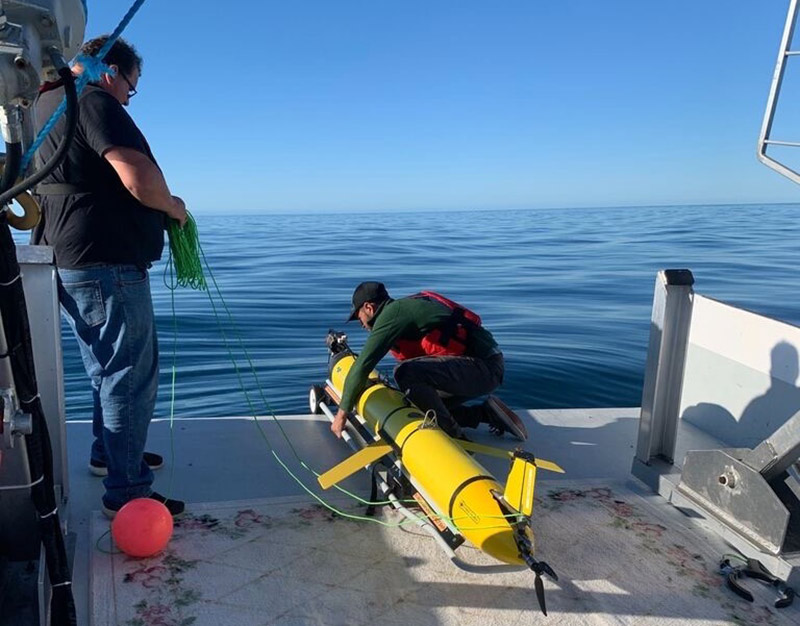Right whales, wrong place: New research shows how climate change is pushing whales further north and into danger
Author: UNB Newsroom
Posted on Sep 1, 2021
Category: UNB Saint John

Newly published research highlights the deadly impact of climate change on the survival of the endangered North Atlantic right whale.
In an Oceanography cover article released on Sept. 1, researchers from three universities, including UNB’s Dr. Kimberley Davies, lay out how changing ocean conditions in the northwestern Atlantic Ocean are further complicating efforts to protect the endangered North Atlantic right whale from fishing gear entanglements and ship strikes.
With fewer than 400 whales remaining, the species is at critical risk of extinction. The study points to climate-driven oceanographic changes that have made the whales’ typical summer feeding grounds in the Gulf of Maine and the western Scotian Shelf less favorable. In response, right whales have altered their feeding behaviour and moved further north, into the Gulf of St. Lawrence, an area with significant ship traffic and fishing, and which at the time lacked protective measures to minimize whale injury and death.
“As warming becomes more frequent and persistent, right whales will continue to surprise us – showing up in new and old places alike,” said Dr. Davies, an associate professor of biological sciences at UNB in Saint John and one of the study’s authors. “Managers, scientists and stakeholders on both sides of the border must work together to more nimbly implement measures that keep pace with the rate of ecosystem change.”
This move northward led to what would be designated an Unusual Mortality Event by the U.S. National Oceanic and Atmospheric Administration after 17 right whales died in the summer of 2017. That event triggered responses including investigations and emergency protective measures.
The need for a better awareness of, and response to, the presence of right whales has shaped a significant part of Dr. Davies’ research program since. She’s led research collaborations with Transport Canada to pioneer new methods of passive acoustic monitoring and detection of whales using underwater drones. Upon detection of a whale, the drones send a signal, which in turn triggers a notice to ships to slow their speeds, reducing the likelihood of injury or death.
“In Atlantic Canada, our lives are strongly connected to the sea,” said Dr. David MaGee, UNB vice-president (research). “And for all humans, the earth’s waters and the life within them are incredibly important. Our researchers work every day with colleagues and partners to tackle the most significant questions and challenges we face, including saving at-risk species. I’d like to extend my congratulations to Dr. Davies and her co-authors, and a thank you as well, for their dedication to making our world better.”
The paper was co-authored by Dr. Davies, Dr. Charles Greene, professor of earth and atmospheric sciences and director of the ocean resources and ecosystems program at Cornell University, and Dr. Erin Meyer-Gutbrod, assistant professor of earth, ocean and the environment at the University of South Carolina.
The paper presents findings from the Climate Change and the Oceanography of the North Atlantic Right Whale Population research project funded by the Lenfest Ocean Program. The Lenfest Ocean Program is a grantmaking program that funds scientific research on policy-relevant topics concerning the world’s oceans.
“Our goal in supporting this project was to give decision makers some of the scientific information they need to navigate the complexities associated with protecting the critically endangered North Atlantic right whale population in a changing ocean. Our team looks forward to working with the researchers to share their findings with scientists and managers in Canada and the U.S., as well as the public,” said Charlotte Hudson, project director for the Lenfest Ocean Program.
Media contact: Jeremy Elder-Jubelin
Photo: Ocean Tracking Network technician Alex Cerra preparing to launch an underwater glider, which will be used to detect right whales in the Gulf of St. Lawrence. Credit: Ocean Tracking Network.
